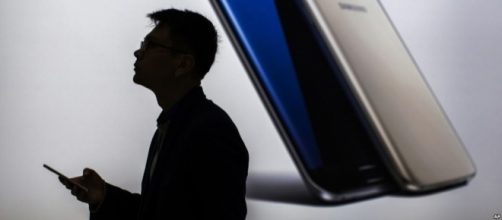In the last six months, U.S. Customs officers and Border Patrol noticed at the border and in airports a dramatic increase in searching people’s Electronic Devices upon entry into the U.S. According to data released last week, law enforcement confiscated nearly 15,000 mobile devices for research between October 2016 and March 2017. Despite the sudden spike in searches, the latest figures only represent one percent of nearly 2 million people that traveled to and from the United States during that period. John P. Wagner, deputy commissioner of U.S.
Customs and Border Protection, said, “These investigations, which have an impact on fewer than one percent of international travelers, contributes to nationwide security inspections, child pornography arrests and serve as human trafficking evidence.”
Conflicting views
Privacy supporters claim that these investigations seem too intrusive while violating Americans' rights to protection against unreasonable searches implemented by the Bill of Rights' Fourth Amendment. However, the courts don't believe such immunities should be allowed in airports and at the border due to federal investigators fighting criminal offenses like terrorism.
On the other hand, a ruling from the Supreme Court back in 2014 did state that law enforcement is required to have a warrant to look through electronic devices whenever agents arrest a person.
Chief Justice John Roberts said in the ruling, “Modern cell phones are certainly not simply just another technological convenience. With all they contain and may reveal, they keep a lot of American privacies confidential for life. The truth that technology now allows us to carry such information in our hands does not make the details any less worthy of the protection for which the founding fathers fought.”
However, since that full case did not entail a search at the border, officials for the Department of Homeland Security said the ruling did not apply to searches conducted along the U.S. border.
Plans for change
Faiza Patel, a co-director of the liberty and national security program at the Brennan Center for Justice at NYU’s School of Law, said she intends for that to change.
In her statement, she said, “Plenty of these exemptions to the Fourth Amendment existed once we weren’t conducting these types of queries on someone's Mobile Device. I am uncertain if that can continue based on the way everything is changing.”
The plan of searching cell phones and other various electronic devices at the border made its debut in the Bush administration with a concentration on individuals. However, the searches lately have expanded to add a full range of men and women that do not pose a threat.
Homeland Security’s acting general counsel, Joseph Maher, said looking through electronics was exactly like searching through baggage.
In a publication for USA Today, Maher stated, “Just like Customs can be charged with inspecting travel luggage, cargo and vehicle storage units upon entry into the U.S., there are situations in this digital era when we need to check mobile devices intended to violate laws and regulations.
Bills and lawsuits
A few days ago, a band of lawmakers on Capitol Hill introduced legal guidelines in a new bipartisan bill that would require customs officials to obtain a warrant to search the contents found in a mobile device confiscated along the border.
Senator Ron Wyden (D-OR) said, “By demanding that a warrant is issued to look through Americans' mobile gadgets and forbidding inordinate holds, this law makes certain that border patrol officers target crooks and terrorists rather than wasting time thumbing through harmless U.S. citizens' personal data. Senators Jared Polis, Rand Paul, and Blake Farenthold co-sponsored the bill. Border searches will be the subject of a lawsuit as well.
The Knight First Amendment Institute at Columbia University is suing the Department of Homeland Security for the most important points of searches of travelers’ electronic devices by customs agents since 2012.
The legal action alleges that customs authorities and special agents with Homeland Security searched and seized the electronic devices of thousands of people, including U.S. citizens without suspicion, which they said could violate the U.S. Constitution.

